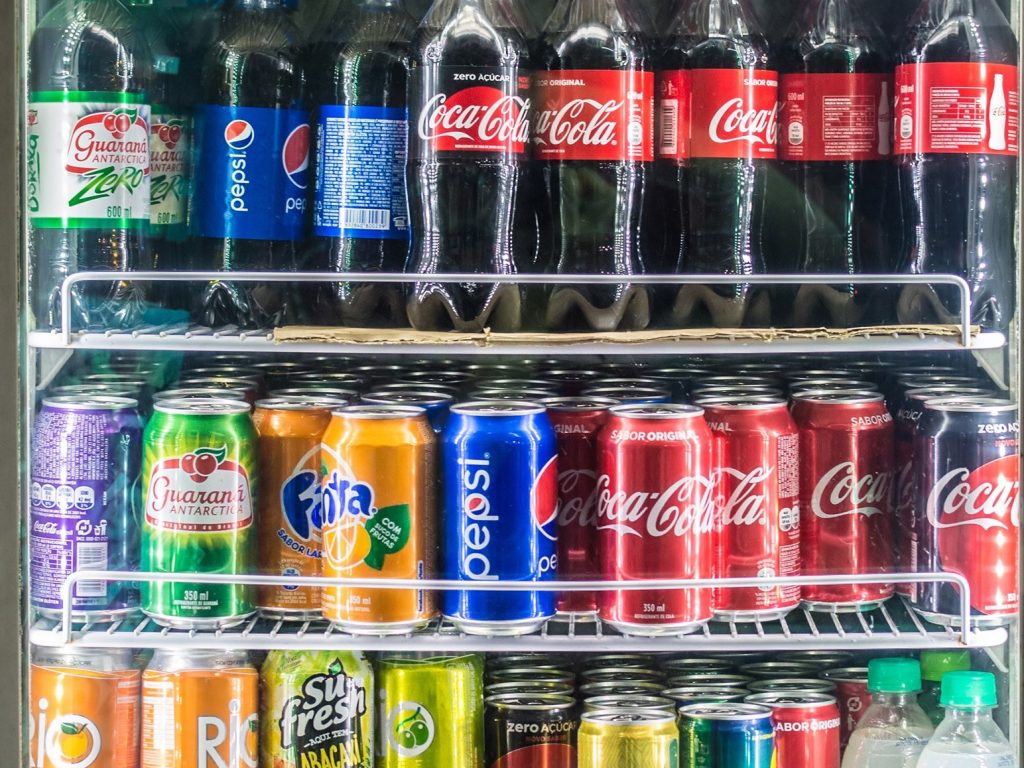Beverage is an integral part of our everyday diet. Beverage and drinking water supply over 80% of our daily total water intake. Some beverages, such as milk, juices, and soda, can also be a significant source of calories and nutrients. According to USDA beverage study report, most consumed beverage for over 20 years men are soft drinks, coffee, and alcoholic beverages; most consumed beverage for over 20 years women are coffee, soft drink and tea. Herbal tea is generally considered safe for the reproductive system. While scientific studies found that added sugar, caffeine and alcohol in soda, coffee, tea containing caffeine and alcoholic beverages may have negative effects on human fertility.

Mean intakes (cups) of beverages by men and women age 20 years and over, 2007-2008
Added sugar in beverages
The consumption of added sugars has been linked to obesity, diabetes, and heart disease. Although added sugar consumption appears to be decreasing in the United States, the added sugar intakes of most American continue to exceed recommendations (according to USDA report). Added sugar-containing beverages are widely consumed among American adults. Among which, sweetened soda is the largest contributor of added sugar in beverages.

High sugar beverages may cause infertility
- Free sugar in beverages may negatively influence hormone level
Studies (1, 2, 3) have shown that beverages high in sugars result in dyslipidemia and insulin resistance, which are well-known risk factors for hormone and ovulatory disorders.
Fruit juice, which contains a high level of free sugar, showed positive associations with incidence of type 2 diabetes – an insulin resistance chronic disease.
Sugar-sweetened beverage, such as sugar-sweetened soda, was found to elevate follicular estradiol concentration, which associates increased risk of breast cancer in a breast cancer study.
A Study discovered male reproductive FSH level inversely relates to Sugar-sweetened beverage intake. FSH was found to stimulate the production of an androgen-binding protein, which is necessary for sustaining the maturing sperm cell.
- Sugar-Sweetened beverage inversely relates to female fertility
A study of preconception maternal beverage intake and in vitro fertilization outcomes was carried out in 340 female patients. Higher intake of sugared soda was associated with lower total, mature, and fertilized oocytes, top-quality embryos, and lower live birth rate. Even a moderate consumption of soda (0.1-1 cup/day) showed significant negative effects.
In the study of fecundability and sugar-sweetened beverage intake, lower fecundability is associated with higher sugar-sweetened soda.
- Sugar-Sweetened beverage inversely relates to male fertility
Sugar-sweetened beverages and sweets detrimentally associated with male semen qualities in some studies.
In the fecundability study, male intakes of sugar-sweetened beverages were also associated with reduced fecundability.
Limit sugar-sweetened beverage intake
Scientific studies have provided sufficient evidence on negative associations between added sugar and human reproductive health. Limiting sugary beverage is recommended for preparing conception and a healthy pregnancy.
Beverages with high sugar include
- sugar-sweetened soda
- energy drinks
- sport drinks
- fruit juices
Coconut water, which is a significant source of potassium, is a healthy option for hydrating your body through the day. Some manufacturers start to add sugar in coconut water, so be sure to choose the products without added sugar.
